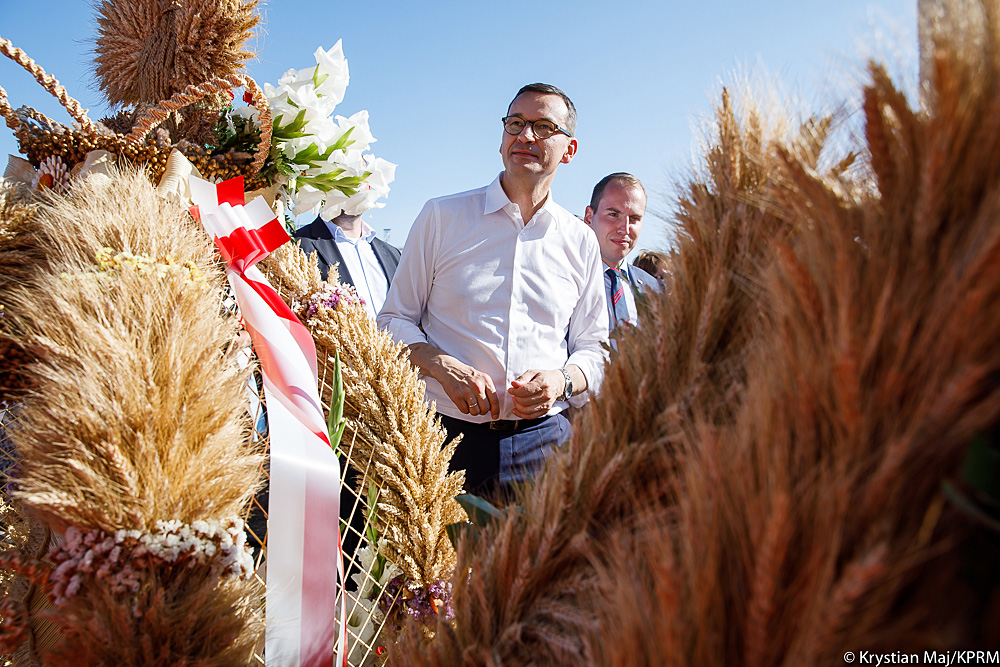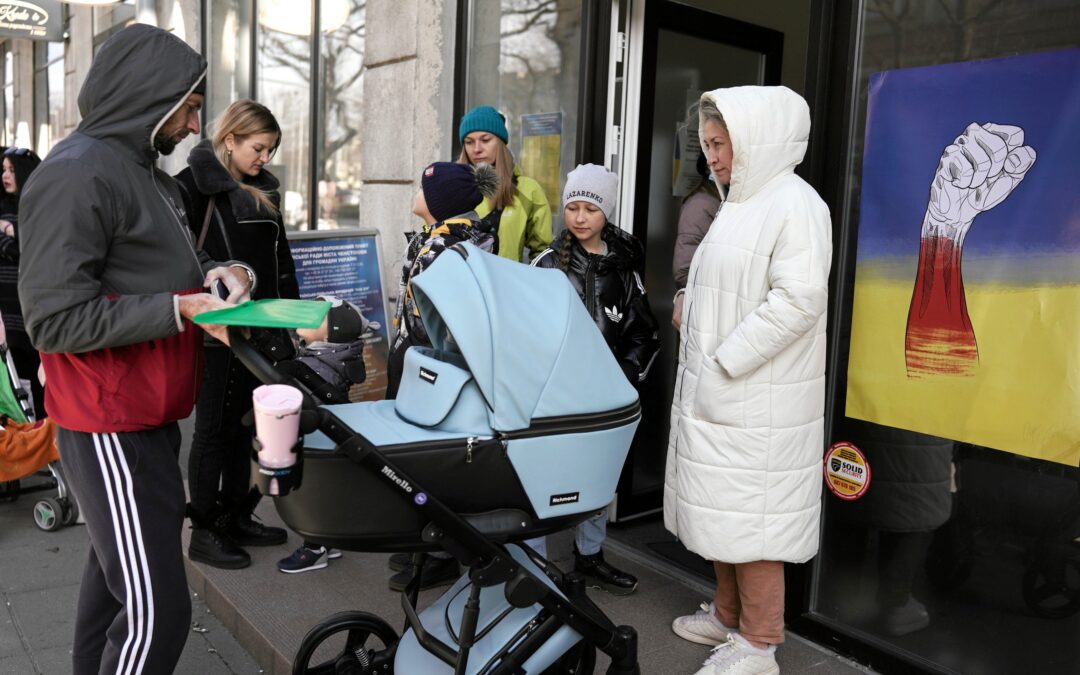Poland’s ruling party has announced a new programme to boost farmers, who they say have been “betrayed” by previous governments. The policies will lower farmers’ taxes, create free marketplaces for them, and extend subsidies and insurance coverage.
“We are the representative of the Polish countryside,” said Law and Justice (PiS) party chairman Jarosław Kaczyński, as he unveiled the programme on Saturday. He noted that the disposable incomes of people living in cities and villages have converged in recent years under his party’s rule.
The leader of a long-running series of protests against the government’s agriculture policies has, however, dismissed the latest promises. He argues that PiS is out of touch with the real needs of farmers.
According to agriculture minister Grzegorz Puda, the new policies will address the “two main problems” of the countryside, which are low profitability and a large number of intermediaries.
Among the planned changes, the government will allow farmers to directly sell products worth up to 100,000 zloty (€22,000) without tax every year. To further boost sales, the party wants to introduce an obligation for local authorities to set up free marketplaces for farmers.
“We want the farmer and his family to be able to sell products directly on the farm,” said Puda. “But we also want sales to take place from their car, or on the internet.” There are also plans for new storage centres across Poland.
🇵🇱🌾Rolnictwo będzie rozwijać się jeszcze szybciej dzięki kluczowym zmianom, które wprowadza #PolskiŁadDlaPolskiejWsi. #PolskiŁad pic.twitter.com/u0NRhVVr1P
— Prawo i Sprawiedliwość (@pisorgpl) October 9, 2021
Puda pledged to bring Polish agricultural subsidies to the average level of support across the EU, which will mean 97% of farms receiving more. There will also be additional handouts for young farmers and for ecological farms.
The ruling party has also pledged to invest more in rural infrastructure, including the water supply, sewage system, lighting, pavements by roads and sports facilities.
Kaczyński called for such investments to be driven by bottom-up initiatives unlike “in the old days, during communism”, when plans came “from the top,” reports Interia.
Moreover, PiS has announced the creation of an Agricultural Insurance Fund for which 3 billion zloty (€650 million) has been earmarked in the state budget. An additional 4.5 billion (€980 million) zloty will also be set aside for “the reconstruction of Polish processing”.
Also speaking at the event in the town of Przysucha, Prime Minister Mateusz Morawiecki said that the countryside had been “betrayed” and “left to itself” in the past three decades.
“The policy of the liberal parties led to the collapse of the countryside,” he said. “If someone has no respect for the Polish countryside, he also has no respect for the constitution and Polish sovereignty.”
“The Polish farmer defends normality. You are allowed to drink milk, eat meat, fish. This is normal,” said the prime minister. He added that permits would no longer be required for the construction of farm buildings of up to 300 square metres and that farmers would be able to retire without having to give up their farms.
Yet the deal was met with criticism from the most prominent farmers organisation, Agrounia, whose leader Michał Kołodziejczak said that Kaczyński “would never be a representative of the Polish countryside”.
“They are completely unaware of what is happening in the countryside right now, which is panic, crisis, a difficult situation,” Kołodziejczak told Wirtualna Polska.
Agrounia has led a series of protests against the government for overseeing rampant inflation as well as for specific policies, such as its response to the swine fever epidemic, which it deemed were “destroying agriculture“.
Kołodziejczak admitted that many of the things mentioned by Kaczyński on Saturday had matched Agrounia’s demands. But he criticised PiS for not making clear that “the Polish countryside should be the source of food production for Poles”, nor for talking about making food prices affordable for Poles.
Obojętnie co nie powie nigdy nie będzie reprezentatem polskiej wsi. #PJK ani raz nie powiedział, że polska wieś ma być miejscem produkcji żywności i to jej główne zadanie. pic.twitter.com/RemLrEI6A2
— Michał Kołodziejczak (@EKOlodziejczak_) October 9, 2021
Main image credit: Krystian Maj / KPRM (under public domain)

Maria Wilczek is deputy editor of Notes from Poland. She is a regular writer for The Times, The Economist and Al Jazeera English, and has also featured in Foreign Policy, Politico Europe, The Spectator and Gazeta Wyborcza.




















